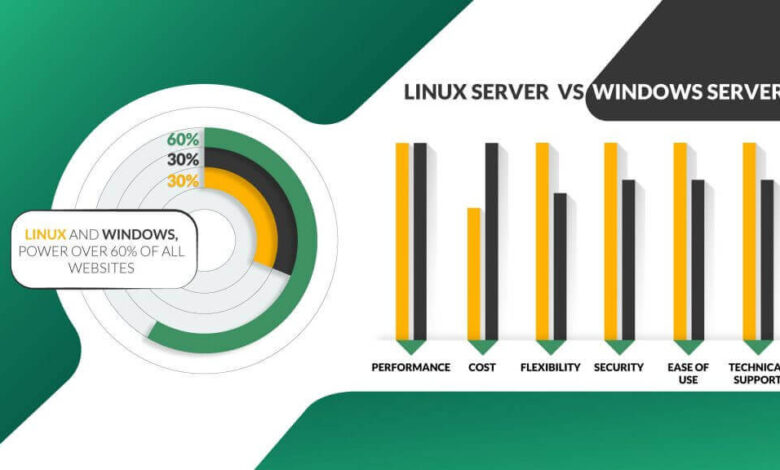What is a VDS server: features, comparison of Windows and Linux, advantages of renting in Ukraine

What is a VDS server?
When discussing virtual servers, we often hear two terms: VPS and VDS. While they may seem similar at first glance, there are differences. A VDS (Virtual Dedicated Server) is a virtual dedicated server running on a separate virtual machine. It simulates a full-fledged physical server, but is built on a single, powerful physical server shared among multiple users.
So, imagine this: you own a huge building, and you allocate separate apartments to different residents. Each apartment is completely autonomous: it has its own doors, utilities, and even rules. A VDS works exactly the same way—the user receives dedicated resources and manages them independently.
The history of VDS
The first steps toward virtual servers were taken back in the 1990s, when companies began looking for ways to reduce the cost of purchasing physical hardware. With the development of virtualization technologies (such as VMware and KVM), it became possible to run multiple independent servers on a single piece of hardware.
Let’s consider the situation: companies used to purchase separate physical machines for each project, which was expensive and inefficient. Today, thanks to VDS, you can run dozens of servers on a single piece of hardware, and each one will work as if it were the only one.
Main characteristics of VDS
VDS has a number of characteristics that make it attractive:
- Dedicated resources – processor, RAM and disk space are reserved exclusively for you.
- Flexible settings – you install any software and manage the server as an administrator.
- Isolation – problems with neighboring virtual machines do not affect your server.
For example, you need to launch an online store with thousands of visitors. On shared hosting, the site will slow down due to the neighbors. On a VDS, all the resources are yours, and performance remains stable.
What is VDS used for?
VDS is in demand in various fields:
- Hosting of websites with high traffic.
- Placement of CRM and ERP systems.
- Online games and game servers.
- Storage and processing of large databases.
So, imagine you’re opening an online store. With regular hosting, you’re experiencing issues, and customers are leaving. By switching to a VDS, you gain stability, control, and security. It’s cheaper than a dedicated server, and more reliable than shared hosting.
Windows VDS vs Linux VDS
A common question arises: which is better – Windows or Linux?
Here are three main arguments in favor of Windows VDS:
- Simplicity of the interface – many people are more comfortable working with Windows than with the Linux command line.
- Compatibility – many programs, especially 1C or MS SQL Server, require Windows.
- RDP support – you can connect to the server as you would to a regular computer and work remotely.
For example, you need to manage your accounting in 1C. This is impossible on Linux, but everything works perfectly on a Windows VDS. But there are some downsides, too.
Disadvantages of Windows VDS
While Windows has its advantages, there are also disadvantages to consider:
- Higher license cost compared to Linux.
- High resource demand – the server requires more memory and processor.
- Frequent system updates and reboots.
Let’s consider this: if you’re running a simple business card website, Linux will be cheaper and easier to maintain. But if your business relies heavily on Windows software, you’ll have no choice but to use a Windows VDS.
What knowledge is needed to work with Windows VDS?
To confidently manage Windows VDS, you should have basic knowledge:
- Understanding how Windows Server works.
- Setting up remote access (RDP).
- Knowledge of software installation and configuration.
- Fundamentals of Security Administration.
So, imagine you’ve rented a Windows VDS for the first time. Without basic administration skills, it’s easy to make mistakes that lead to failures. But the good news is that many companies, including Ukrainian ones, offer support and assistance to users.
Examples of Ukrainian companies
There are numerous providers offering VDS rentals in the Ukrainian market. Among them are Hosting Ukraine , CityHost , and DeltaHost.
DeltaHost stands out for its balance of price and quality, as well as the option to choose Windows or Linux VDS.
For example, you need to deploy a corporate employee portal. At DeltaHost, you can rent a VDS with the required OS and receive 24/7 support, which is essential for the stable operation of your business.
Windows VDS vs. Linux VDS – Comparison Chart
| Criterion | Windows VDS | Linux VDS |
| Price | More expensive: requires a Windows Server license. | Cheaper: Most Linux distributions are free. |
| Resource consumption | Requires more RAM and processor. | More economical in the use of resources. |
| Interface | Graphical, convenient and familiar to most users. | Command line based, requires terminal knowledge. |
| Software compatibility | Suitable for 1C, MS SQL, .NET applications, and other Windows programs. | Ideal for websites (PHP, MySQL, Python, Node.js), open-source solutions. |
| Remote access | RDP support – you can connect as to a regular computer. | SSH is fast and secure, but requires command line skills. |
| Updates and support | Frequent updates, possible reboots. | Updates are less intrusive, the system is stable. |
| Scope of application | Corporate solutions, accounting, working with Microsoft software. | Websites, application hosting, cloud services. |
| Complexity of administration | Easier for beginners thanks to the interface. | Requires knowledge of Linux administration. |
So, we can conclude: if you need to work with Windows software (e.g., accounting, 1C, MS SQL), you can’t do without a Windows VDS. However, if your project involves websites or open-source applications, a Linux VDS will be cheaper and more efficient.
Conclusion
Using a VDS in today’s world is not a luxury, but a necessity. Such a server provides convenience, security, and flexibility. It pays for itself by reducing physical infrastructure costs. For owners of high-traffic websites, projects with significant CPU and database loads, renting a VDS is a solution that guarantees business stability and growth.
So, if you’re looking for reliability and control, but want to avoid huge hardware costs, renting a VDS is the best choice for you.




